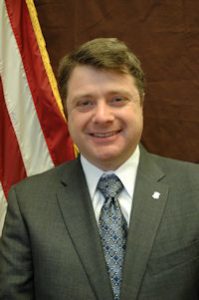[caption id="attachment_203647" align="alignleft" width="200"]

JAMES C. SHEEHAN is a Rhode Island state senator representing District 36.[/caption]
PROVIDENCE - Charter schools are hybrid institutions — part public and part private. Like public schools, all interested students have random access to the charter school, and the charters use public tax dollars to pay for the education. Like private schools, charter schools are run by their own governing boards or bodies.
But are Rhode Island's privately-run public charter schools operating effectively, efficiently and in the best interest of their pupils and community? It is difficult to know without increased public transparency and accountability.
That’s why I introduced legislation (
2018-S 2186) to provide community representation to the governing body of publicly supported charter schools when a sending community’s students comprise more than 5 percent of a charter school’s population. The legislation would authorize school committees to appoint one designee to the board of directors of the governing body.
Given that the fact that Rhode Island law mandates that the funding for these charter schools be provided through a tuition-based model which draws off of municipal budgets, I think it only fair for those affected municipalities be permitted to participate in the governance of charter schools.
Charter schools were designed to more independently experiment to find creative approaches or ideas to improve education for our young people. It is an innovative approach to education, and these new approaches or ideas would be shared with the public schools. However, this independence should not come at the expense of full public transparency or accountability.
And it all comes back to one of the hallmarks of our governmental creed: that there should be no taxation without representation.
There are various quasi-public agencies in the state. Each one of them has some system of oversight or public representation to hold them accountable. Charter schools have no such oversight, and since they are funded with taxpayer money, I believe that public oversight is a necessity. Granted, the small handful of charter schools that are designated as mayoral academies do have a mayor on the board, but these are in the minority and that isn’t nearly enough in terms of accountability.
The best way to ensure accountability is by having representation by elected officials or their designees on the governance boards of charter schools to approve and monitor the expenditure of public funds as is required in other public schools.
Our Massachusetts neighbors have addressed this very issue and have shown us how reasonable oversight can become an essential part of the charter school governance process. Not only has the Commonwealth adopted guidelines on the composition, conduct, and transparency of charter school boards, they also require that charter boards be held accountable for their fiduciary duties as trustees of public funds.
Rhode Island would be well-advised to take a page out of their playbook and do the same thing. Providing a voice for the district taxpayers who paid for the charter schools is both appropriate and just. Transparency and Accountability to the public should not be just for district schools.
This is good public policy for Rhode Island. A little bit of sunshine benefits everybody.
James C. Sheehan D-Narragansett is a state senator representing District 36. He resides in North Kingstown.











 JAMES C. SHEEHAN is a Rhode Island state senator representing District 36.[/caption]
PROVIDENCE - Charter schools are hybrid institutions — part public and part private. Like public schools, all interested students have random access to the charter school, and the charters use public tax dollars to pay for the education. Like private schools, charter schools are run by their own governing boards or bodies.
But are Rhode Island's privately-run public charter schools operating effectively, efficiently and in the best interest of their pupils and community? It is difficult to know without increased public transparency and accountability.
That’s why I introduced legislation (
JAMES C. SHEEHAN is a Rhode Island state senator representing District 36.[/caption]
PROVIDENCE - Charter schools are hybrid institutions — part public and part private. Like public schools, all interested students have random access to the charter school, and the charters use public tax dollars to pay for the education. Like private schools, charter schools are run by their own governing boards or bodies.
But are Rhode Island's privately-run public charter schools operating effectively, efficiently and in the best interest of their pupils and community? It is difficult to know without increased public transparency and accountability.
That’s why I introduced legislation (